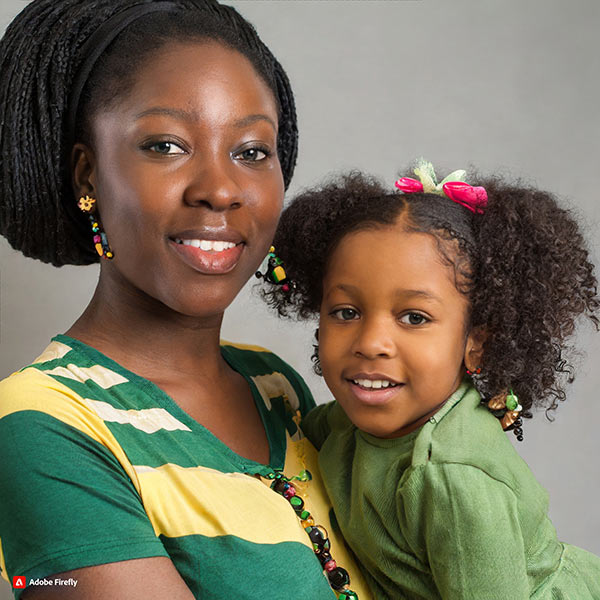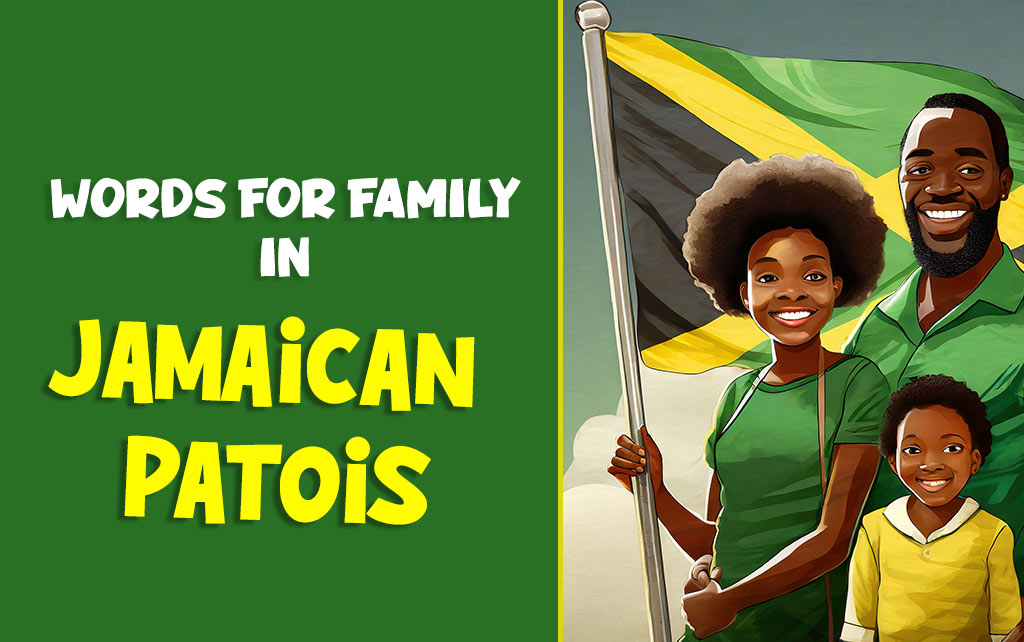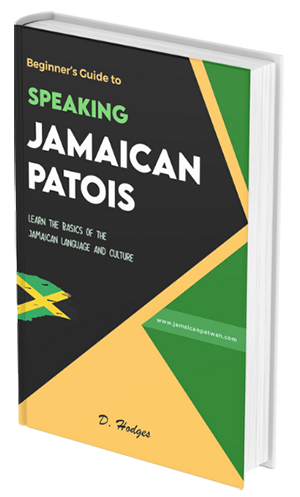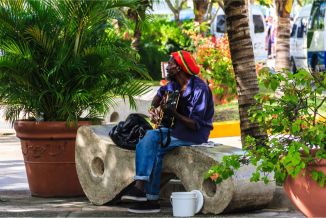Hey there! In this guide, we're going to look at family-related terms and expressions because they're super important in Jamaican culture and daily life. Learning these family terms can help you feel more connected to the core of Jamaican society, whether you're planning a trip there or just want to give your language skills some authentic flavor. So let's get started on our linguistic tour through the Jamaican family tree!
Jamaican Family Structure
The typical Jamaican family is an extended family, meaning that it includes not only parents and children, but also grandparents, aunts, uncles, and cousins. This extended family network is often very close-knit, and members provide each other with emotional and financial support.
Parents (and Grandparents)
“The Heart of the Family”
In Jamaican Patois, family words often carry a deep sense of respect and affection. Here's a table to help you grasp how Jamaicans refer to their parents and grandparents:
| English | Jamaican Patois |
|---|---|
| Mother | Madda |
| Mommy | Mammi or Mammy |
| Mama | Muma |
| Mom | Mumz |
| Father | Fada |
| Daddy | Daddi |
| Papa | Pupa |
| Grandmother | Gran madda |
| Grandmother | Granny |
| Grandfather | Gran fada |
Baby Mother and Baby Father

“Parents of the Same Child”
In Jamaican Patois, parenting relationships are expressed with terms like "Baby Father" and "Baby Mother." Here are the patois translations for these words:
| English | Jamaican Patois |
|---|---|
| Baby Mother | Baby Madda |
| Baby Mother | Pickney Madda |
| Baby Father | Baby Fada |
| Baby Father | Pickney Fada |
These terms are used to describe the parents of a child born out of wedlock or outside of a traditional marriage. They emphasize the parental roles and responsibilities, regardless of the formal relationship status.
Daughter and Son
“The Beloved Offspring”
In Jamaican culture, family bonds are celebrated, and children hold a special place in the hearts of their parents. Here, we'll look at the terms used for daughters and sons, as you can see in the table below.
| English | Jamaican Patois |
|---|---|
| Daughter | Dawta |
| Son | Son |
| Child | Pickeney |
| Child | Pickney |
| Children | Pickney dem or Pickeney dem |
These simple yet terms encapsulate the special bond between parents and their children, regardless of their age. Jamaican families take great pride in their sons and daughters, celebrating their achievements and cherishing their place in the family unit.
Siblings
In Jamaican Patois, there are unique terms for brothers and sisters. Here's a table to introduce you to some common sibling terms:
| English | Jamaican Patois |
|---|---|
| Sister | Sista |
| Brother | Breda |
| Half-sister | Haaf sista |
| Half-brother | Haaf-breda |
Extended Family and Kinship Terms
Jamaican families are close-knit, and they often include aunts, uncles, and cousins. It's important to understand these terms to get the hang of Jamaican family dynamics.
Aunt and Uncle
There's a fond familiarity in the terms used for aunts and uncles. Here are the key terms:
| English | Jamaican Patois |
|---|---|
| Uncle | Unkle |
| Aunt | Aunti |
These terms are used broadly, encompassing both maternal and paternal aunts and uncles in Jamaican family life.
Beginner's Guide to Speaking Jamaican Patois
Looking for a quick and easy way to learn Jamaican Patois? Our Beginner's Guide has everything you need to get started;
- Learn correct word pronunciation
- Understand grammar and structure
- Handy everyday phrases
Get Your Copy
Cousins
Jamaicans have special terms for cousins, making family gatherings even more lively. Here's a table to help you navigate these familial relationships:
| English | Jamaican Patois |
|---|---|
| Cousin | Cuz or Cuz-Cuz |
| Female Cousin | Cuz Gyal |
| Male Cousin | Cuz Bwoy |
| Big Cousin | Big Cuz |
| Little Cousin | Likkle Cuz |
Understanding these cousin terms in Jamaican Patois simplifies family conversations and connects you more closely with Jamaican culture.
Step Family
In Jamaica, it's pretty common for families to grow through remarriage, which means that step-parents, step-siblings, and step-children become part of the family dynamic. The Jamaican Patois language has some unique terms to describe these blended family relationships:
| English | Jamaican Patois |
|---|---|
| Step-father | Step-fada |
| Step-mother | Step-madda |
| Step-brother | Step-breda |
| Step-sister | Step-sista |
| Step-child | Step-pickney |
Blended families are a testament to the adaptability and openness of society. These terms emphasize the importance of embracing new family members and nurturing harmonious relationships within the blended family structure.
Godparents and Godchildren
In many cultures, including Jamaican culture, family is more than just biological relatives. It includes special roles like godparents and godchildren.
| English | Jamaican Patois |
|---|---|
| Godfather | Godfada |
| Godfather | Godpupa |
| Godmother | Godmadda |
| Godmother | Godmuma |
| Godchild | Godpickney |
These terms denote a spiritual and cultural bond beyond familial ties. Godparents often play an active role in the upbringing and guidance of their godchildren, making these relationships cherished in Jamaican society.
Test Your Knowledge
Now that you've got a grasp of Jamaican family terms, it's time to put them into practice and enhance your language skills. Here are some exercises and suggestions to help you become more proficient in using these expressions:
Exercise 1: Family Tree
- Create a simple family tree using Jamaican family terms. Include parents, siblings, aunts, uncles, cousins etc. Practice saying these words out loud as you build your family tree.
Exercise 2: Role-Play
- Ask a friend or language partner to help you engage in role-play conversations, such as creating scenarios where you introduce each other using Jamaican family terms.
Exercise 3: Cultural Exchange
- Engage with Jamaican friends or acquaintances and use these words respectfully when discussing their families. It shows appreciation for their culture and helps build connections
Subcribe to Our Youtube Channel
Learn Jamaican Patois & Get more of the Jamaican Vibe with our easy to follow video lessons.
SubscribeCultural Insights
Understanding the cultural context behind Jamaican family terms adds depth to your language skills. These terms aren't just words; they reflect the warmth, kinship, and strong family bonds that are at the heart of Jamaican culture.
The Significance of Family
In Jamaica, family is not just a unit; it's a source of strength and support. The closeness of family members is deeply cherished, and it's common for extended families to live in close proximity, creating a strong sense of community. When you use Jamaican family terms, you're acknowledging the significance of these relationships in daily life.
Respect and Affection
When addressing family members in Jamaican Patois, you'll notice a blend of respect and affection. Terms like “Mammi”, “Granny”, "Aunti," "Unkle," and "Big Cuz" are not merely functional; they convey a sense of love and regard. Jamaican culture places a strong emphasis on showing respect for elders and expressing affection within the family circle.
Conclusion
Congrats! You've learned 20+ Jamaican family words, which means you now have the keys to more authentic communication and cultural understanding. By practicing these expressions and appreciating their cultural significance, you've taken a step closer to embracing the warmth and kinship that define Jamaican society. Keep up the good work!






